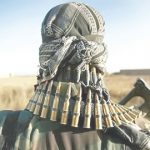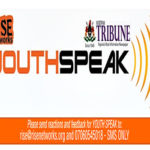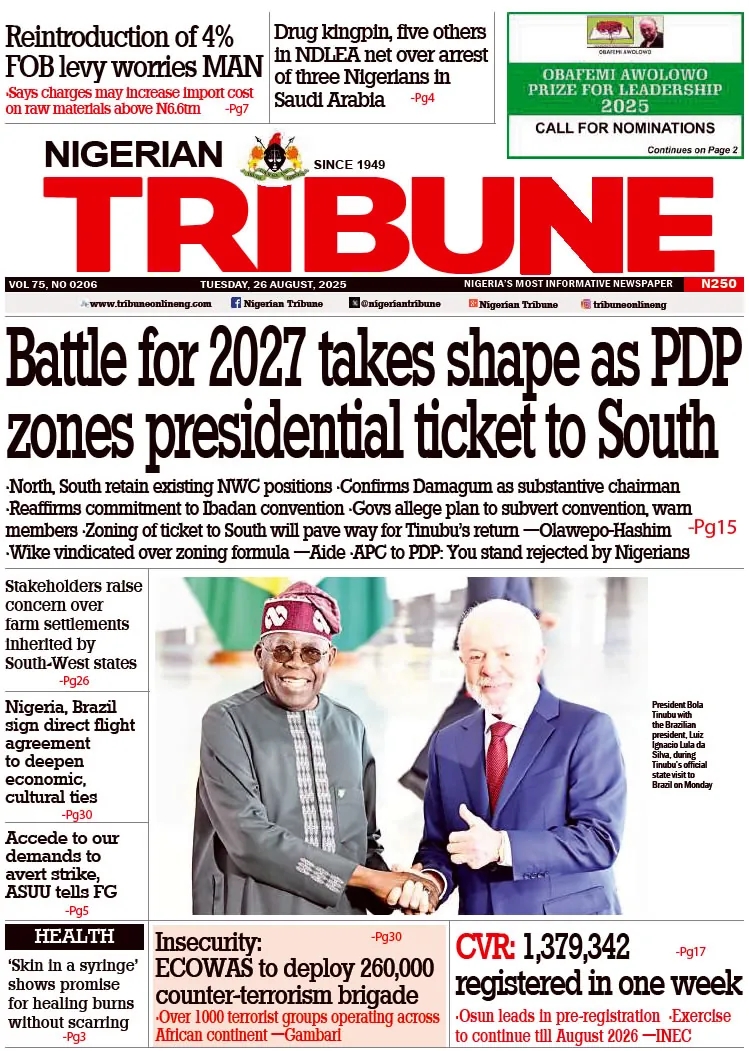ON Tuesday, a debate organised for the governorship candidates of four major political parties in Abia State ended in chaos following gunshots at Abia Hotels, Umuahia, venue of the event. According to media reports, gunshots and cannisters of teargas were allegedly fired by security aides to Governor Okezie Ikpeazu and Alex Otti, the governorship candidate of the All Progressives Grand Alliance (APGA), following the altercation between the security details of the governor and some students who besieged the hotel and attempted to ferret him to the venue of yet another debate. As the governor’s convoy was about to leave the venue after the debate, the students reportedly surged towards his convoy; the security aides seized and manhandled their leaders, and other students barricaded the main gate to the hotel. A stampede thus ensued on the hotel premises, as members of the audience, newsmen and supporters of the candidates sought to escape being hit by bullets. Thankfully, no life was lost in the incident, although scores of people were said to have sustained injuries.
PHOTOS: Atiku Abubakar enjoys rousing welcome in Kaduna
To say that the Abia incident is saddening would be an understatement. To all intents and purposes, the incident speaks to the disorderliness that characterises not just the political process but also the entire national life. It is pertinent to ask some critical questions. Who are the ‘students’ in question and when, where and how did they schedule the debate to which they attempted to drag the governor? Why would a group of students attempt to forcefully convey a state chief executive to the venue of a debate to which he has apparently not consented? Could this be an indication of how they organise their own affairs on their various campuses, sometimes forcing vice chancellors to ‘address’ them in the middle of the night?
Perhaps it was unfortunate that in an attempt to disperse the crowd and bring the situation under control, the security aides in question fired several shots and cannisters of teargas into the air before forcing their way out of the hotel. But it would be hypocritical to pretend that they were not put in a critical situation in which they had to protect their principals from harm. To be sure, there is nothing wrong with the idea of a group of students organising a debate for the people who seek to govern them. If anything, the challenges plaguing the country require leaders that are cultured, educated, intellectually savvy and emotionally stable, and one of the important platforms for projecting one’s developmental vision for a state is through debates. However, a debate cannot be run with a mob mentality; it has to follow due process. The organisers are expected to notify the participants formally and secure their consent before proceeding with the exercise. Ahead of the exercise, they are supposed to maintain correspondence and contact with the expected participants and provide all the details that they (the participants) may require in order to guarantee a comfortable outing. During and after the exercise, they are supposed to treat their guests courteously and respectfully.
In the current case, it would in fact have been outside the remit of the debate organisers alone to guarantee the safety of the politicians they expected to participate in the exercise. An event at which the Chief Executive of a state would be present necessarily has to have the input of his security team, particularly as the event is being held in his domain. It is therefore shameful that these fine details were not observed by the students who attempted to coerce Governor Ikpeazu to attend a debate. As a matter of fact, if the students had followed due process, they would not have scheduled their event for the same date that he participated in a debate organised by a group of online practitioners and private radio stations in the state.
All of the foregoing illustrates the challenges facing the country’s democracy. Critical populations, including students, are still conducting their affairs in patently questionable and unstructured ways. Democracy cannot mature when the populace is uninformed and undisciplined, which is why the Abia State incident should be investigated properly with a view to averting a recurrence. We are loath to call for stringent punishment in this case, but a reprimand by the concerned authorities would not be out of place. Hoodlums could have taken advantage of the chaos caused by the students to inflict damage on law-abiding citizens. Debates at whatever level should be organised by well-known groups with a demonstrable intention to advance the national discourse. On no account should they be hijacked by shadowy groups with unclear agenda.
WATCH TOP VIDEOS FROM NIGERIAN TRIBUNE TV
- Let’s Talk About SELF-AWARENESS
- Is Your Confidence Mistaken for Pride? Let’s talk about it
- Is Etiquette About Perfection…Or Just Not Being Rude?
- Top Psychologist Reveal 3 Signs You’re Struggling With Imposter Syndrome
- Do You Pick Up Work-Related Calls at Midnight or Never? Let’s Talk About Boundaries






